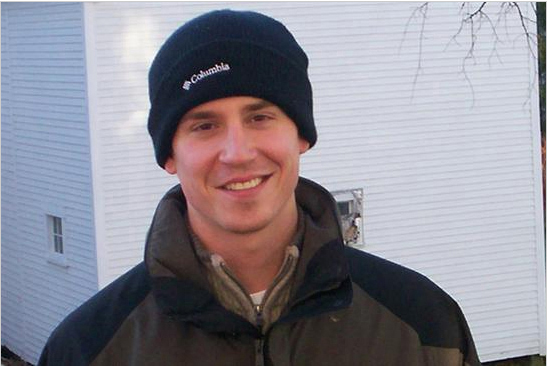Justin Crowley-Smilek was badly wounded while fighting in Afghanistan, but it was his psychological and emotional scars that six years later led to a fatal confrontation with a Farmington police officer.
Crowley-Smilek, 28, was shot on Nov. 19, 2011, after chasing the policeman with a knife and demanding that the officer kill him. A review by the Attorney General’s Office, required under Maine law, found the officer was justified in using deadly force.
Crowley-Smilek came home to Farmington in 2006 after serving as an Army Ranger in the mountains of Afghanistan and neighboring Pakistan.
His first three-month tour left him damaged, physically and mentally.
“The stories Justin told me that happened over there were just as horrific as what we viewed on TV in the Vietnam era – terrible things,” said his father, Michael Smilek.
For a sensitive soul, it was too much, said his mother, Ruth Crowley.
“His heart was his best attribute,” said Ruth Crowley, who had tried to talk him out of joining the military. “I told him ‘Justin, you’re going to have to kill people and your heart is so beautiful, I don’t think that’s what’s meant for you.'”
Crowley-Smilek’s service with the Rangers ended with a 30-foot fall from a helicopter, leaving him with chronic head and back injuries that at times caused unrelenting pain.
His battle scars included post traumatic stress disorder, which led to a bipolar disorder, and left him 100 percent disabled, said his father.
Like many returning veterans, he was hypervigilant, scanning rooftops for snipers and avoiding mailboxes and debris piles because they might hide explosives. He watched people’s hands to make sure they weren’t reaching for a weapon.
But he tried to make a normal life for himself. Two weeks before Christmas, in 2010, he met Destiny Cook, and the two became close.
“He was very charismatic,” she said. “He would just kind of draw you into whatever he was talking about. A big part of our relationship was me listening to him talking.”
Crowley-Smilek was buying a house in nearby Mt. Vernon and had been approved for the mortgage.
But as sometimes happens when things seem to be going well, he stopped taking his medication, convinced he no longer needed it. Then he refused to resume taking it, afraid it would “dumb him down,” Cook said.
Crowley-Smilek became increasingly agitated. He abruptly cancelled the closing on his house.
At a Nov. 18 court hearing stemming from an assault charge, a judge ordered Crowley-Smilek to get a full psychological evaluation. The tests were scheduled, but he was allowed to leave. Local police were not alerted to the court’s concerns about his mental health.
The next day, Crowley-Smilek stood outside the Farmington police station and spoke to police on an intercom, saying he needed someone to come out and talk to him. He had left his cellphone, watch and wallet at home, as well as his dog Ranger, who was locked in the bathroom.
Ryan Rosie was 27, a provisional officer on the job for five months who had yet to complete the 18-week basic law-enforcement course. He had no idea why he was being summoned outside. At first, Crowley-Smilek walked away, ignoring the officer’s call to him. Then he turned and advanced toward the officer, pulling a kitchen knife from his pocket.
Rosie backed away, and tried to keep a cruiser between them. Crowley-Smilek said “You better kill me,” and chased the officer, repeating the phrase twice more. Rosie pulled his Taser and his pistol, then holstered the Taser. In his 100-hour police training course, he had been taught to use a gun when someone is threatening to kill him.
He fired his pistol seven times, fatally wounding Crowley-Smilek.
An incident report team appointed by Farmington police after the shooting found that Rosie followed department policy and his training, both of which were appropriate.
The Attorney General’s Office also deemed Rosie justified in his use of deadly force because he was confronted by deadly force.
Michael Smilek and his wife, who are deeply religious, sent a card of forgiveness to Rosie. They still believe their son shouldn’t have been killed, but feel the lack of communication between courts and police is a bigger problem than one officer’s decisions.
“I can’t imagine what the officer is going through,” Smilek said. “I know he’s got family. Because nobody knew what was going on with Justin, someone else is going to have PTSD.”
Send questions/comments to the editors.



Comments are no longer available on this story